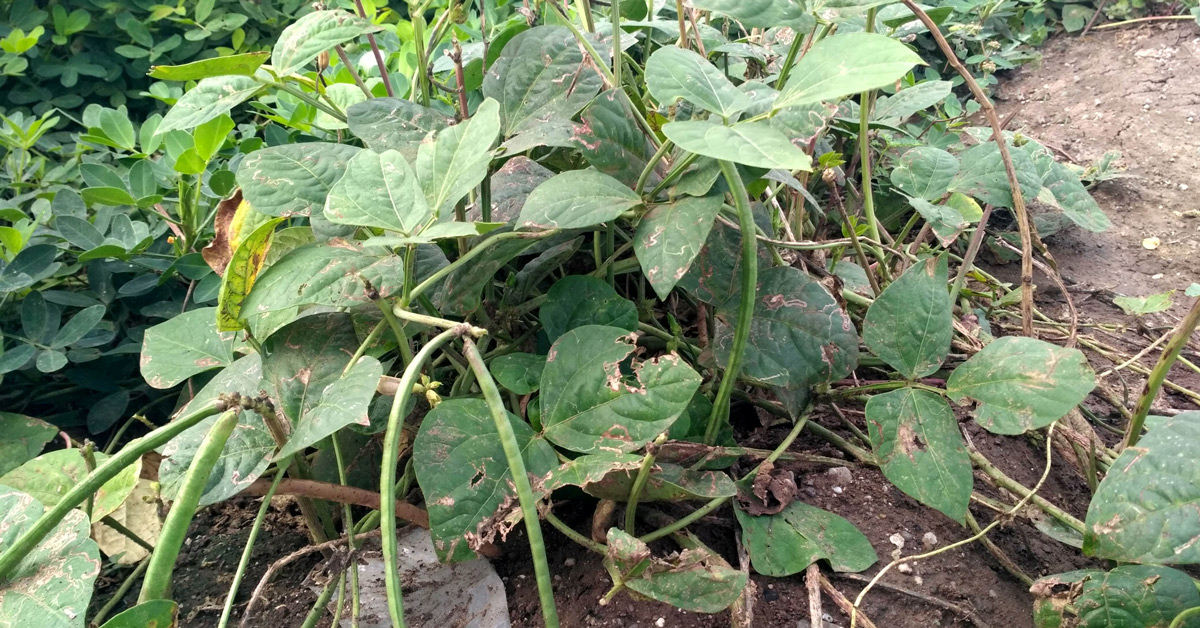
Deficiencies in the risk assessment of Bt cowpea cultivated in Nigeria
A new scientific publication finds substantial deficiencies in the risk assessment of genetically engineered Bt cowpea approved for cultivation in Nigeria, as Testbiotech reports. The transgenic plants produce an insecticidal Bt toxin meant to protect the plants from the larvae of Maruca vitrata, which feed on the plants and are also known as pod borer. Testbiotech recommends discontinuing the marketing of the plants as well as additional in-depth investigations before planning any releases. The cultivation and consumption of the beans may otherwise negatively impact health and the environment.
The main findings of analyses of the publicly available data are:
(1) Outcrossing and hybridisation with traditional varieties and wild relatives of the cowpea are likely, and can lead to the spread of the transgenes in the environment. The long-term effects can neither be predicted nor controlled. Gene flow could become a threat to seed collections, seed saving and traditional farming, and thus endanger the unique common heritage of African farmers.
(2) The potential adverse effects of the insecticidal toxin produced by the transgenic cowpea on biodiversity, insects and soil organisms were not empirically tested. This is a major cause of concern, as cowpea naturally produce substances that are known to strongly increase the toxicity of the Bt proteins. Such synergistic effects may even impact food and feed safety. However, these hazards were neither considered nor examined.
(3) Some specific findings indicate that cowpea may produce potential allergens. In addition, Bt proteins are thought to enhance or induce immune responses. There are many traditional uses of cowpea in food and feed - this means that potential effects on health may vary and need to be assessed in regard to specific diets. However, no experimental data on food and feed safety are available.
Testbiotech concludes that the identified hazards are serious and the uncertainties and unknowns with regard to risk assessment are substantial. Therefore, without further in-depth investigation, release and cultivation of the Bt cowpea should not be allowed. The identified reasons for concern can also be relevant to other countries where the genetically engineered cowpea is approved, or where applications have been filed for release or marketing.
The new publication:
https://www.mdpi.com/2223-7747/11/3/380










